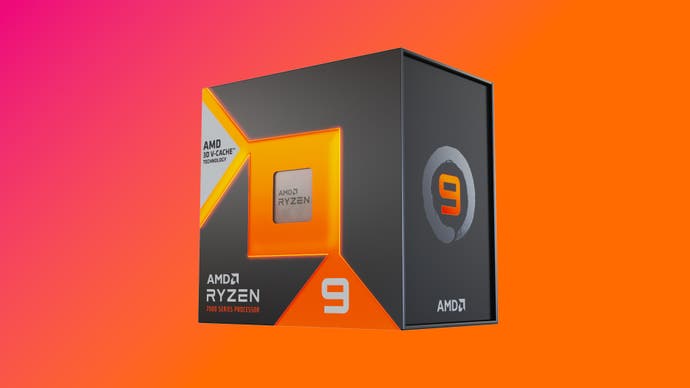AMD Ryzen 9 7950X3D review: the new fastest gaming CPU
Solid gains across the board, plus some bonkers results.
So with all of our testing complete, the 7950X3D is undoubtedly a impressive CPU. It offers bleeding-edge gaming performance while maintaining the vast majority of the content creation chops of the original 7950X, making it a fearsome option at the very top end of the consumer CPU market. Average frame-rates against the 7950X were up against the board by five to 40 (!) percent, minimum frame-rates typically saw greater improvements and the 7950X3D was also marginally faster than the 13900K in almost every title we tested.
However, the 7950X and 13900K are also very potent options, and we didn't see the kinds of game-changing performance improvements in as many titles as we did when comparing the 5800X3D with the 5800X; small but modest gains were more common and the 13900K was a hair faster in two older titles, Counter-Strike: Global Offensive and Ashes of the Singularity: Escalation.
Given this, the (£561/$589) Ryzen 7950X or (£328/$337) Ryzen 7700X may be the better value processors than the £699 Ryzen 7950X3D - at least in the here and now. This is true even for pure gaming workloads, especially as RAM/motherboard price drops make Ryzen 7000 more appealing in general. The $449 7800X3D might be one to wait for too, based on our 'simulated' testing on page six which suggests it'll have nearly as much gaming power as the 7950X3D at a much lower price.
Apart from the CPU's raw performance, I was impressed by AMD's software solution, which worked perfectly with Windows 11 to assign workloads to the correct cores (higher cache vs higher frequency) right out of the box.

The only thing that might trip up some users is the rather long list of requirements for this core parking functionality, requiring an updated BIOS, freshly installed chipset drivers, a recent Windows 10/11 OS, Game Mode on, an updated Game Bar app, and so on. Even as a reviewer, it required consulting a 47-page document to check that each requirement was fulfilled, and there's no simple check box somewhere to say 'yup, everything is definitely working'.
It reminds me a little of the Resizeable BAR situation, another performance-enhancing feature that launched without an easy way to check if it was properly enabled (now, the GPU-Z app provides an excellent breakdown of its requirements and status). Hopefully AMD can add some kind of automated checks to Ryzen Master to let users know if this new functionality is working (and how to fix it if it's not).
Regardless though, once the pieces are in place and you boot up a game that really does need that extra cache, the performance improvements can be astonishing - a 40 percent boost in Flight Simulator 2020 was the highlight for us, but other titles that stand to benefit massively are surely out there, most likely amongst sims, racing games and heavily-modded titles.
As usual, we encourage you to read widely when it comes to CPU reviews, as each outlet's time is limited and even different parts of the same game can have starkly different performance profiles. Only by reading a plurality of reviews can you get a true lay of the land, and it'll be fascinating to see what other outlets have uncovered - and how the similar 7900X3D fares.
From our point of view though, the 7950X3D is an strong performer and well worth picking up for high-end PC builds paired with high refresh rate monitors, especially for those that play game genres that benefit from the 3D V-Cache design. The 7800X3D may yet be the pick of the trio though, so bring on April 6th.
AMD Ryzen 9 7950X3D analysis
- Introduction, test rig and content creation benchmarks
- Gaming benchmarks: Flight Simulator 2020, Hitman 3
- Gaming benchmarks: Counter-Strike: GO, Metro Exodus EE, Black Ops Cold War
- Gaming benchmarks: Cyberpunk 2077, Far Cry 6, Crysis 3 Remastered
- Gaming benchmarks: Memory bandwidth analysis
- Gaming benchmarks: Asymmetric design analysis
- AMD Ryzen 9 7950X3D: the Digital Foundry verdict [this page]
